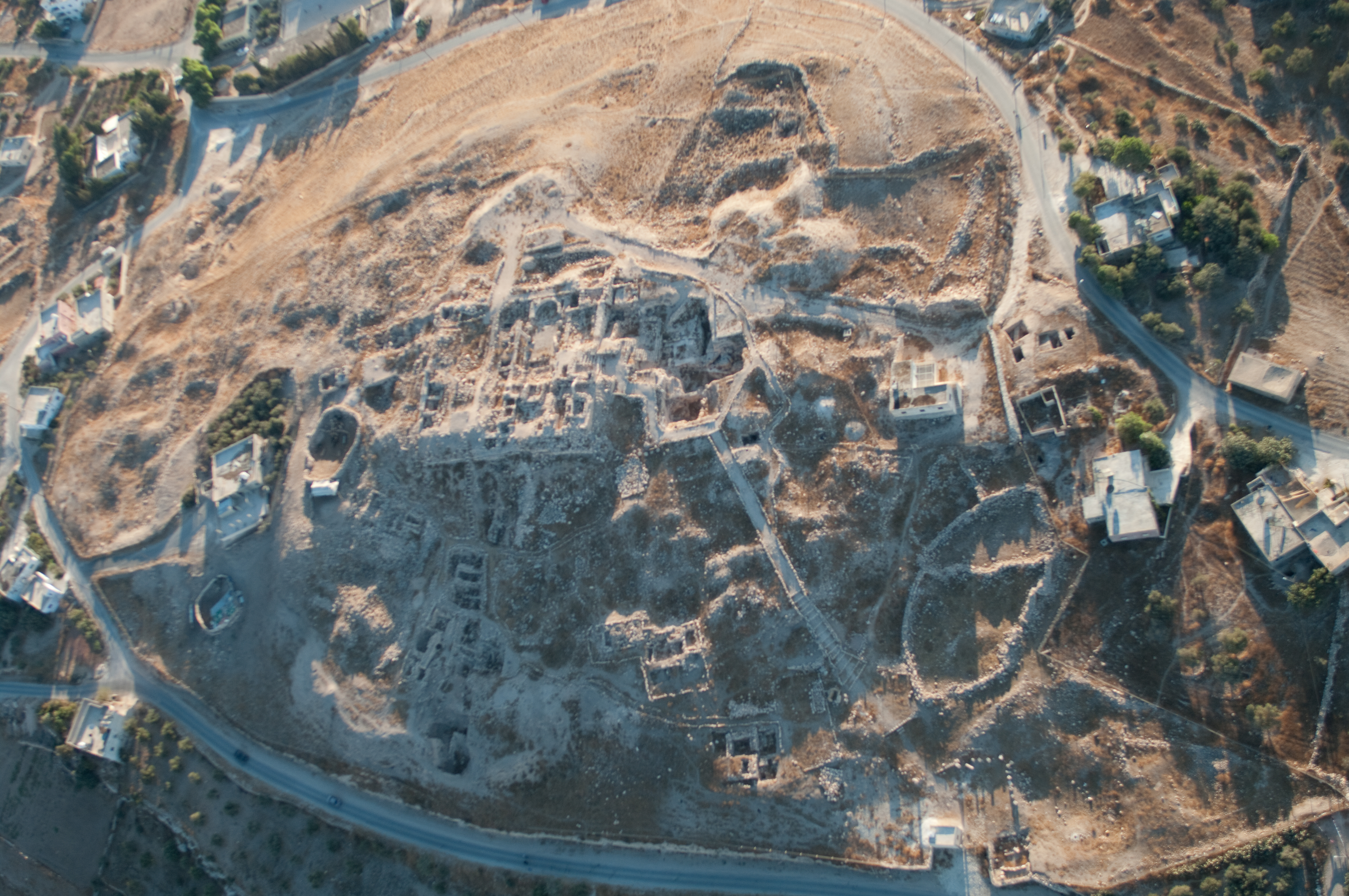A new perspective on the Levant

Tall Hisban is a small village on a hill between Amman and Madaba in Jordan.
‘For more than fifty years, archaeologists have been painstakingly digging through and documenting the layers reflecting, inter alia, footprints of the nearly thirty empires that have passed over this hill in historical times’, Terje Stordalen says.
The Professor of Theology at the University of Oslo has finished his third and final book based on the research carried out at CAS while he was a project leader in 2014-15.
He argues that writing about the history of the magnificent empires and their great rulers and generals fails to tell the story of humankind.
Writing the history of humankind, rather than empires
The volume Levantine Entanglements: Cultural Productions, Long-term Changes and Globalizations in the Eastern Mediterranean, edited together with colleague Øystein S. LaBianca, a Professor of Anthropology at Andrews University, is deeply informed by findings at Tall Hisban.
However, the scholars’ most striking insights are not concerned with the changes brought about by each empire, which have been thoroughly studied before.
Much to the contrary, they find that writing about the history of the magnificent empires and their great rulers and generals does not reflect what actually happened at any given place.
‘A history from the empires’ perspective marginalizes and silences the lives and experiences of the majority. More importantly, it renders invisible those very slow and gradual changes that did, in fact, alter the conditions for performing a human life in this region’, Stordalen says.
‘In this way, it fails to tell the story of humankind.’
The volume contains chapters by archaeologists and historians of various bents, in addition to social anthropologists and biblical scholars.
‘Seen from a bird’s-eye perspective, one might say this is a cross-disciplinary attempt at finding a new way to interpret the history of the region and the resultant characteristics of the Levant, still very much in force today.’
Regarding the word “Levantine” in the title of the volume, Stordalen points out that the name of the region is controversial. He and his colleagues find “the Levant” the ‘least problematic label available’.
‘In our view, the Levant is geomorphologically defined by the great rift running throughout the Jordan Valley. It is further bounded by the Mediterranean in the west, the Egyptian, Arabian, and Syrian deserts in the south and east, and by the Turkish highlands in the north.’
This term is now apparently becoming dominant in English-speaking research on the region, he adds.
Why is a global history perspective important?
‘In its best moments, the global history perspective would succeed in writing the history of humankind, rather than of empires. Global history attempts to write the history of regions and localities across centuries and millennia, rather than that of nations that have come and gone in these regions and localities’, Stordalen says.
Comparing the process of creating the book to that of quilting, Stordalen emphasises the importance of teamwork: ‘There aren’t too many places in the academia that would allow for this kind of explorative and serendipitous processes. Had it not been for CAS, this volume would have never seen the light of day.’
The basic idea was to have philological, historical, and social scientific scholarship meet and interact. One year at CAS was not sufficient to conclude such a process, he says.
‘The work that went into the volume continued for years after we left CAS, and the final developments only emerged during workshops in Jerusalem in the spring of 2019, in which only some of the contributors took part.’
Former CAS books by Stordalen
The Formative Past and the Formation of the Future: Collective Remembering and Identity Formation (2015)
This first volume was written during the research group’s preparations for the CAS year, and it contains inter alia contributions by scholars invited for consultations at CAS (Aleida and Jan Assmann, Saphinaz Naguib)
Edited by Terje Stordalen and Saphinaz-Amal Naguib, Oslo: Novus 2015. The book is open access and available for instance here.
Figurations and Sensations of the Unseen in Judaism, Christianity, and Islam: Contested Desires (2019)
The second volume emerged out of one of the workshops during the CAS year, followed by another workshop at the Zentrum Moderner Orient, Berlin in 2016.
Edited by Birgit Meyer and Terje Stordalen. London: Bloomsbury Academic 2019. Open access here
Stordalen says that ‘despite serious work’, it was not possible to find funding for open access publishing of Levantine Entanglements Cultural Productions, Long-term Changes and Globalizations in the Eastern Mediterranean.
The book is expected to be published in May